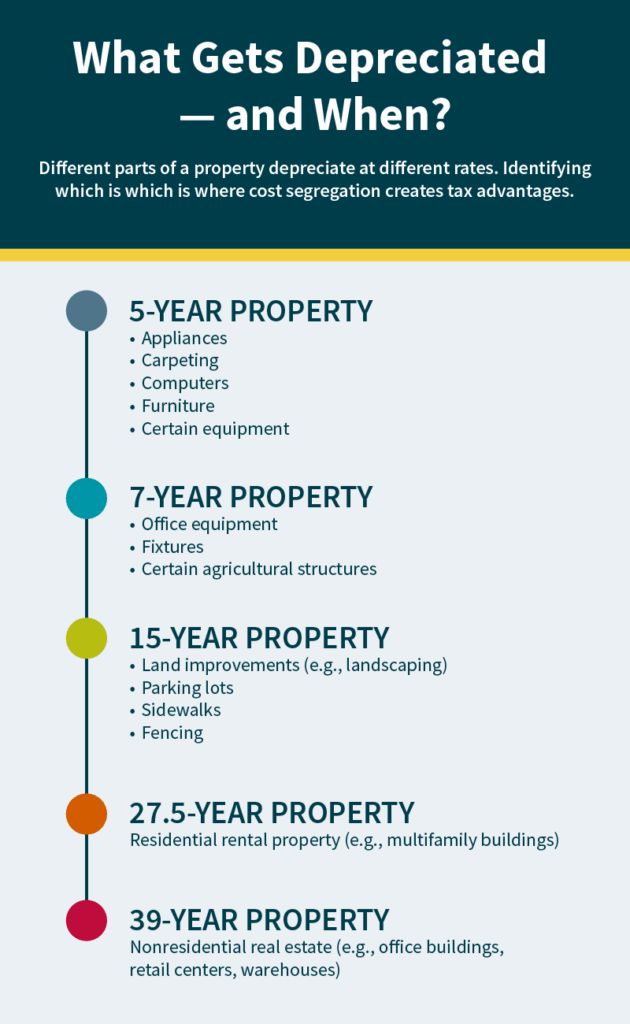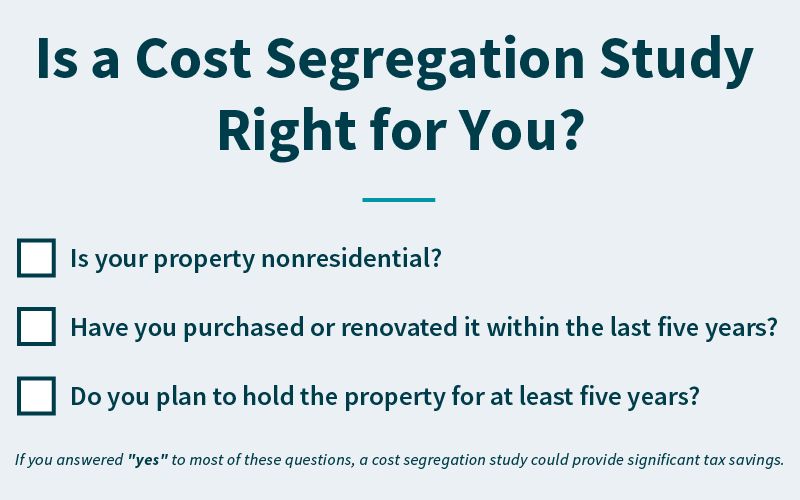- in South America
- in South America
- with readers working within the Advertising & Public Relations industries
- within Real Estate and Construction, Criminal Law and Strategy topic(s)
- with Finance and Tax Executives
Key Takeaways:
- A cost segregation study helps accelerate depreciation on real estate assets, reducing taxable income and boosting cash flow.
- This strategy is especially valuable for newly acquired or renovated properties that owners or investors plan to hold long term.
- Bonus depreciation can significantly increase upfront tax savings.
—
As a real estate investor, developer, or property owner, you're always looking for ways to increase profits and reduce costs. One of the most effective strategies for doing so is leveraging a cost segregation study to accelerate depreciation deductions, reduce taxable income, and enhance cash flow.
What Is a Cost Segregation Study?
A cost segregation study is a detailed analysis that breaks down the various components of a property, identifying costs that can be depreciated over shorter periods — typically five, seven, or 15 years — rather than the standard 27.5 (residential) or 39 years (commercial). By reclassifying assets into these shorter depreciation categories, you can significantly increase your tax deductions in the early years of ownership.

Benefits of a Cost Segregation Study
A cost segregation study offers a range of financial advantages that can help you optimize your tax strategy and reinvest savings back into your business.
- Accelerated depreciation deductions: By identifying qualifying components of your property, you can move a significant portion of your investment into faster depreciation categories — leading to immediate tax savings.
- Reduced taxable income: A cost segregation study allows you to claim higher depreciation deductions upfront, lowering your taxable income and keeping more cash in your business.
- Improved cash flow: By deferring taxes and increasing deductions, you can reinvest your savings into new properties, renovations, or business growth.
- IRS compliance: Properly conducted cost segregation studies align with IRS guidelines and provide supporting documentation while maximizing your deductions.
When Are Cost Segregation Studies Most Valuable?
Cost segregation studies are generally most beneficial for nonresidential properties — though residential properties can still see some advantages. The value of a study depends on several factors:
- Best for long-term holds: If you plan to hold a property for at least five years, a cost segregation study can provide significant benefits. However, if you intend to sell within a year or two, the tax savings may be negated by depreciation recapture.
- More effective on newer properties: If you've owned a building for 20+ years, much of its depreciation has already been realized, limiting the benefit. However, if you've recently acquired the property or completed major renovations, a study can still unlock valuable tax savings.
- Renovations and improvements matter: Even if you've owned a property for a long time, substantial renovations or improvements can justify a cost segregation study to accelerate depreciation on those new expenditures.

The Power of Bonus Depreciation
Bonus depreciation allows you to deduct a significant portion of qualifying assets in the year they are placed in service. Under recent tax laws, bonus depreciation applies to assets with a useful life of 20 years or less, meaning many of the reclassified assets from a cost segregation study can be written off immediately. This creates an even greater upfront tax benefit, further enhancing your cash flow.
Claiming Missed Years of Depreciation Deductions
If you didn't perform a cost segregation study in the year you placed the property in service, all is not lost. You can still complete a study later by filing a change in accounting method using IRS Form 3115.
This process allows you to claim a catch-up deduction — meaning you can take all the missed depreciation deductions you would have received if you had done the study in the first year. For example, if you bought a building in 2023 and filed your 2023 and 2024 returns without a cost segregation study, you could still perform a study in 2025 and claim a catch-up deduction on your 2025 return — significantly improving your cash flow.
While this approach typically works best for properties purchased, built, or renovated within the past few years, it provides a valuable second chance to unlock savings.
Case Study: How Cost Segregation and Land Reallocation Saved a Client Millions
A long-standing client approached us after purchasing a $10 million commercial property. We recommended a cost segregation study to accelerate their depreciation deductions and improve their tax position.
To help them enhance their tax savings, we reviewed the land/building allocation as part of our analysis. The client explored this allocation with a certified appraiser and the appraisal successfully revised the land allocation — unlocking additional depreciable assets.
Through our analysis, we were able to reclassify a significant amount of the building's costs into five-, seven-, and 15-year property categories, making them eligible for bonus depreciation. Our analysis resulted in saving the client between $1.5 million and $1.6 million in taxes.
Beyond just performing the study, we took a proactive approach — reviewing land/building allocations, examining county assessor values, and exploring every opportunity for savings. This in-depth, strategic approach is what sets our cost segregation services apart.
Unlock the Full Financial Potential of Your Real Estate Investments
A cost segregation study is a powerful tool that can help you increase tax savings, enhance cash flow, and reinvest in future opportunities. If you've recently purchased or renovated a property, now is the time to explore how this strategy can benefit you.
The content of this article is intended to provide a general guide to the subject matter. Specialist advice should be sought about your specific circumstances.


